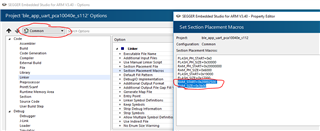Hi,
For a number of upcoming projects we require 802.15.4 and BLE dynamic multiprotocol support. We need to select a SoC to implement this.
We like the look of the nrf52840 and see multiprotocol should be possible using the nRF-IEEE-802.15.4-radio-driver.
A number of people have already asked about this but is there an example showing this working yet? Or if someone has got it working would firstly say they've done it and then, maybe, let us have the code ( or even binary ) please?
We have just had Silicon Labs pull 802.15.4 support from their modules that we were just about to design in so time is critical for us. We don't have the time to learn an API and get to grips with new hardware/software and the inevitable debugging to get to the point deciding to use the nrf52840. If we can prove multiprotocol works we will almost certainly use the nrf52840.
kind regards
Liam



